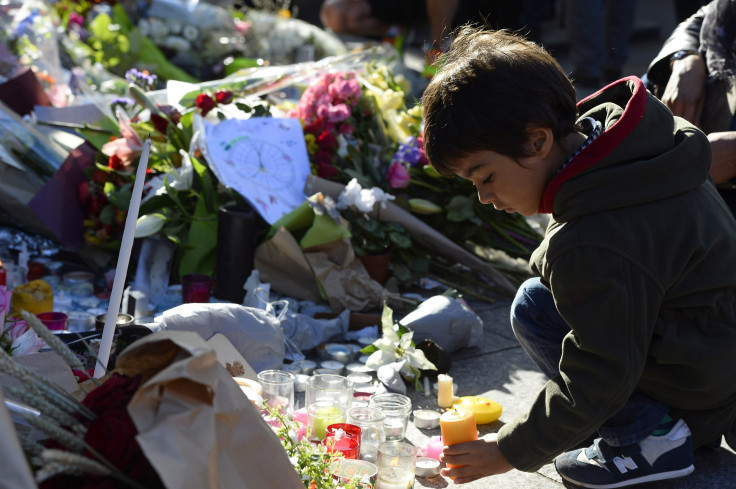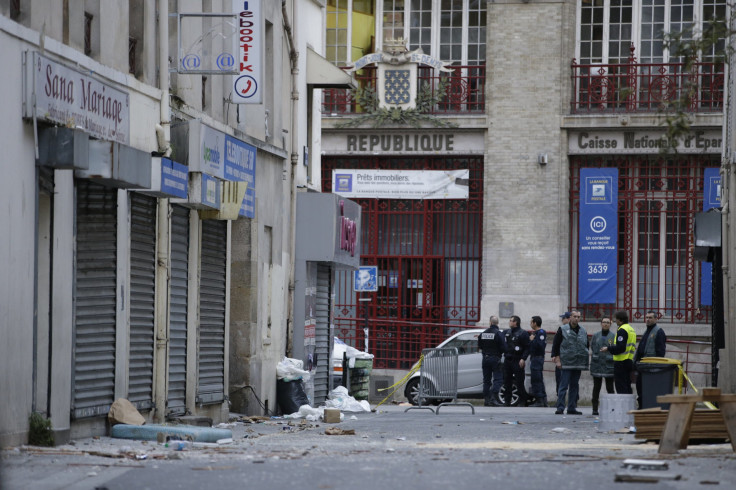French Muslim Parents, Terrified Of Backlash, Urge Their Children To Stay Indoors, Downplay Religious Identity

By all accounts, Samia Hathroubi’s story is one of success. The 30-year-old French-Tunisian human rights activist was born and raised in France; her parents arrived in the country in the 1970s as working-class immigrants. Since then, she and her brothers have become highly educated members of society, working in medicine and law. But after the coordinated terror attacks in Paris last Friday, Hathroubi’s mother had one message for her: “Leave this country.”
“My mother doesn’t recognize France as the country she came to so many years ago,” says Hathroubi, who added that life has gotten tough for ordinary French Muslims who face stigma and prejudice. “She wants us to get out of France because we have a lot of potential and could succeed in other parts of the world. She’s worried about my life, especially because of the work I do.”
Hathroubi’s mother is not alone. Muslims in France are facing a groundswell of distrust and hostility after the attacks in Paris, first on the offices of Charlie Hebdo and a kosher market in January and then in a series of shootings and bombings last Friday. Many French Muslim parents are concerned for their children’s safety -- whether those children are young or fully grown -- and that fear is not misplaced. While many French citizens have expressed support for Muslims (evident in the popular hashtag #NousSommesUnis), there have been several recent reports of backlash. In Marseille, a Muslim woman wearing a headscarf was punched and slashed with a box-cutter on Wednesday. In Evreux, a town in northern France, the words “Death to Muslims” was spray-painted in graffiti around town. And many French Muslims have reported hateful comments flung at them via social media.
It’s a terrifying situation that some Muslim parents, especially those of young children, say has them on constant edge. “We are very worried over this separation in society, particularly as we are French-born,” says Fatma, who lives in the northern suburbs of Paris and spoke on the condition that her family name not be disclosed lest she upset her relatives. “We are all born here, but our spouses are from different backgrounds.”
“All of a sudden our children don’t understand why they are [considered] less French than the others,” she added.

Self-Imposed Curfew
Some parents are even keeping their children from going out unnecessarily, out of fear for their safety. Hathroubi, who works with the Foundation for Ethnic Understanding, also mentors working-class women ages 16 to 21 on how to succeed in school and at work. Many of her charges come from Saint-Denis, a commune in the northern suburbs of Paris which has one of the highest concentrations of Muslims in France. She was supposed to meet with her mentees on Wednesday, but no one showed up.
“Their parents wouldn’t let them come,” says Hathroubi. “People are frightened.”
Lauric Duvigneau, a 43-year-old postal worker who lives in a heavily Muslim area of Paris, says many of his neighbors are afraid to venture far from home.
"Muslim parents and their children are going out into the streets less often. They are protecting themselves out of fear that they would be mistaken for terrorists in France," says Duvigneau.
Parents are also cautioning their children to not display their faith outwardly. A student at the Sorbonne University in Paris told Huffington Post Arabi that her family has pressured her to stop wearing a headscarf so she is not easily identifiable as a Muslim. One student said his parents cautioned him to refrain from talking about religion outside of the home.
But violent attacks from would-be vigilantes aren’t the only source of anxiety for French Muslims. Many fear the government response that could have lasting repercussions on their religious and social freedom.
“The response of the government and public authorities is the one people are afraid of,” says Rim-Sarah Alouane, a doctoral candidate at the University of Toulouse who studies French Muslim youth and religious freedom.
“What happened will be a justification to legally restrict freedom of religion and the public visibility of Islam even further on behalf of the protection of public order,” she added. “But all of these actions are like believing that we will cure a disease by using a band-aid. The illusion of more security and less liberties … will certainly not solve the issue of radicalization, but will actually exacerbate it.”
In the meantime, French Muslims are dealing with the heightened tensions as best they can.
“My advice to my children, my nephews and my nieces is that our family represents what it means to be French,” says Fatma, the mother of four. “We are all born in France and have our own unique stories and character. In the face of people who are Islamophobic or who are hateful extremists, I tell the kids not to engage.”
© Copyright IBTimes 2025. All rights reserved.





















